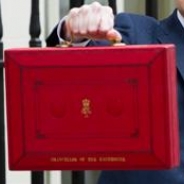
For a summary of the key points, please see Budget Summer 2015 - Summary
Based on the changes announced in the 2015 Summer Budget, I venture that simplification was not high on Mr. Osborne's agenda. We have:
- A Savings Tax Allowance and now a Dividend Tax Allowance, with new 7.5% and 38.1% tax rates (more on those new rates later)
- The Pensions Annual Allowance will be tapered for high earners, with what looks like a new kind of "adjusted income", which may include salary sacrifice - in some cases.
- A new regime for (restricting) tax relief on loan interest for landlords, (individuals only, it seems), which reminds me of the old rules for charges on income before they were, ahem, simplified by being incorporated into accounting deductions. Have some apparently very limited routes to carry forward net "finance losses" if the gearing is too high - and don't forget that interest rate rises are supposed to be fairly imminent. (And yet the Summer Budget whinges about "Tax Motivated Incorporations", or "TMIs", as if they were a bad thing. An obvious response springs to mind).
- We also have a new round of Enterprise Zones for smaller towns to look forwards to. Which will be great, until HMRC leaves no stone unturned in trying to deny relief for a government-approved tax incentive. Like film partnerships, say, or Business Premises Renovation Allowance.
- While on property, we have the promise that the, er, simple and straight forward Wear and Tear Allowance is to be abolished because some landlords are claiming it without actually "improving their property". (See 1.192 in the Budget handbook). Which kind of misses the point of Wear and Tear by a country mile.
On a different note, a new kind of Inheritance Tax Nil Rate Band will be introduced so that a person / couple may leave the main home, worth up to £1Million, to their children, etc., The flexibilty is welcome - the benefits are not lost if, for instance, one has to sell one's home. But note that the new allowance won't be fully installed until 2020/21. London property prices are apparently rising at a heady rate. By how much will they have risen in another 5 years?
The problem of rates and allowances keeping pace with inflation will, in time, be exacerbated by the fact that this new Nil Rate Band will then rise in line with the Consumer Price index, like many other rates and allowances. CPI is broadly perceived to grow more slowly than the traditional RPI - which is, of course, why the Chancellor prefers the former. That differential may become painfully evident in a few years' time - particularly now that we individuals have no protection from purely inflationary gains. Never mind, it will be a problem for 'the younger generation' to deal with and, as we all know, they don't vote. Yet.
With regard to restricting the Annual Allowance - and therefore the effective tax relief - on pension contributions by higher earners, it is perhaps worth pointing out that this is unfair: contributions are supposed to be exempt - paid out of untaxed earnings, funds are supposed to grow tax-free, and pensions are supposed to be taxed only when they pay out. To my mind, pensions lose their appeal if they are taxed on the way in and on the way out.
I also think that landlords are being treated a bit harshly here (and it smacks political) in that their tax relief for loan interest is being curtailed. It has been suggested that it is unfair that landlords can get tax relief on items for which a private homeowner cannot. But this is no different to the taxi driver who charges me for a fare into town, or the bakery that sells me a pasty, or the garage that repairs my car. These are all things which I could try to "do" myself so we are effectively in competition. Nobody is suggesting that tax relief should be blocked on their business expenses. So why are landlords a special case?
Finally, it was refreshing to see / hear the Chancellor's being so open about using low Corporation Tax rates to attract foreign companies: "A new 18% rate of corporation tax [is being introduced] - sending out loud and clear the message around the world: Britain is open for business." Nice of him also to clarify that it is the UK-resident individuals who are footing the bill for this largesse: "The reforms I’ve announced to dividend taxation also allow us to do [this]" So income tax rates on dividends are being increased - despite the prime minister's promise not to raise Income Tax rates - so that multi-national companies can be encouraged to spend less tax here in the UK!
And while the Chancellor paid lip service to that promise, let's not kid ourselves: page 4 of the Budget Handbook clearly shows that the Chancellor's policy decisions are projected to raise billions in additional tax revenues - over £6billion a year by 2020/21. I just cannot see the point of legislating not to raise what are now referred to as "the main rates" of Income Tax, etc., when it is abundantly clear that the taxpaying public will still be paying more tax through other routes.


Please register or log in to add comments.
There are not comments added